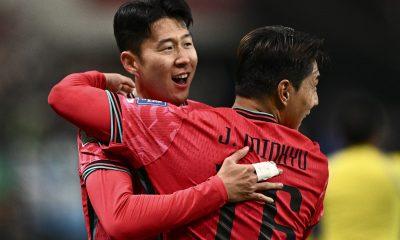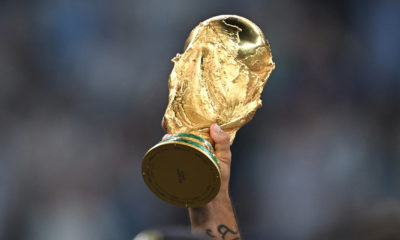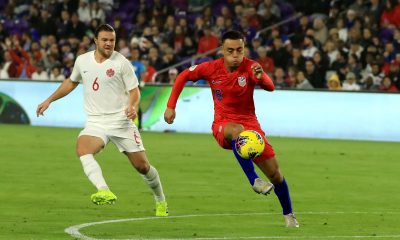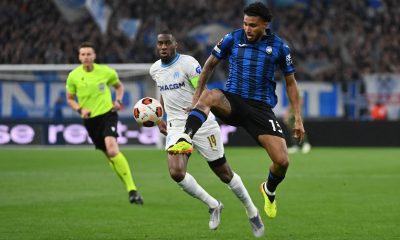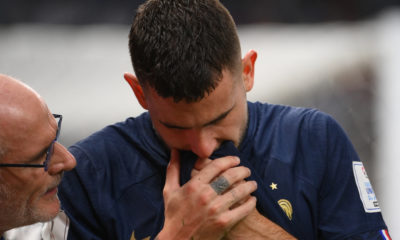
Italy has not contested a continental championship final since the 2013 UEFA U-21 European Championship showdown against Spain. That solid showing by the Italians eight years ago was masterminded by DEVIS MANGIA. The Malta national teams’ head coach is familiar with the logistics that go through on and off the field during a major tournament. Gianluca Lia spoke to the former Azzurrini coach about the upcoming Euro 2020 championship…
The build-up for any major international tournament intensifies as soon as the national coaches start to announce their squad lists. No matter what, the coaches’ decision is immediately under scrutiny and potential starting formations start to take centre stage.
We often ask, when do coaches realise that those 23 players – 26 in the case of this year’s Euro 2020 due to the COVID-19 – suit best their idea of football?
“When you have to select the players for an international tournament, you have to consider that it is the business end of a cycle that you have started when you took charge,” Mangia said.
“Heading into this tournament, you should have a finished-product squad that fits your style of football.
“Around January and February, you would have already 19 or 20 players on your mind and then you leave vacant slots where you have the most doubts or else you are waiting for some players to shine in the final part of the season whom you think they can carry on their club form into the national team.”
During his U-21’s commitments in Euro 2013, Mangia had to deal with then Italy’s senior team coach Cesare Prandelli who had to pick his squad for the Confederations Cup that was pencilled during the same timeframe.
“Back then, I also had to leave a couple of players, Mattia De Sciglio and Stephan El Sharaawy with the A team, whereas Prandelli had allowed me to take Marco Verratti and Lorenzo Insigne to the European Championship – as an U-21 coach, you have to deal with such situations as well,” Mangia explained.
“This year’s European Championship will bring a different challenge to the teams as they have to travel from one country to another, whereas for example when we were in Israel back in 2013, we settled in Tel Aviv for our group commitments”
A crucial part of the preparation towards a major championship is the training camp that starts as soon as the club competitions finish and ahead of the trip to the hosting nation.
“During those training camps, the physical tests are important because they are an indicator of the fitness level of the players – you have players who are exhausted after a whole season and others who are still in good condition,” Mangia said.
“Individual sessions are fundamental because at that point in time, the players need to regain their best physical performance and obviously the training strategies differ from one player to another.
“Then, it is always important to revise the tactical and technical situations as we would already know who our first three opponents in the group stages are.”
During the competition, the coach tends to focus more on polishing tactical details and recovering players’ energies, with Mangia indicating the mental aspect as being crucial.
“This year’s European Championship will bring a different challenge to the teams as they have to travel from one country to another, whereas for example when we were in Israel back in 2013, we settled in Tel-Aviv for our group stage commitments,” the former Palermo coach said.
“Moreover, having few days between one game and another is difficult – I experienced that with Malta during our recent qualifiers where we had a game every two days that included tough opponents and away trips.”
Coaches’ ability
At the helm of the Italy U-21’s national team, Mangia coached three talents that are now forming a key part of Roberto Mancini’s Azzurri, heading into the European Championship – Marco Verratti, Lorenzo Insigne and Ciro Immobile.
“It is a source of pride for me to see them doing well with the Italy national team,” Mangia said.
“As an U-21 coach, you do not strive towards recording important results but also help the youth players grow and prepare them for their upcoming and final step – the senior national team.
“Back then, all of our offensive players managed to have at least one single cap with the A team – Verratti, Insigne, Immobile, Mattia Destro and Manolo Gabbiadini – in a team that had its goalkeepers and defenders all playing in Serie B at the time.”
Asked about fellow Italian coach Roberto Mancini, Mangia heaped praise on the former Inter coach’s work since taking charge of the Azzurri.
Italy are at the back of a massive failure having missed out on the 2018 World Cup and Mancini has now already steered the ship out of trouble, restoring Italy’s competitiveness and rekindling the enthusiasm around his team.

“Mancini has done a great job and it was not easy given that Italy had missed the World Cup for the first time in 50 years,” the Malta coach pointed out.
“Mancini has managed to rejuvenate the squad while bringing the fans closer to the team once again, as the Italian team has defied the football stereotypes around it and became a much more offensive-oriented side unlike previous years.”
Mangia highlighted the fact that an international tournament is like the knockout stages of the Champions League, where every single detail can help you win a game.
“When you are in charge of a national team, you have to make good decisions when it comes to select your squad and then be a good coach as you have to fit them in your idea – therefore, details and coaching skills matter.”
Despite Mancini’s good work with Italy, Mangia pointed at France as his favourites for the final win.
At the same time, he also singled out England as potential winners given their talented squad and the potential home advantage in the latter part of the tournament.
Should Belgium have a good tournament, Mangia will be pleased as he identified their project as a model for what he is doing at the helm of the Maltese team.
Finally, Mangia will be monitoring closely Croatia and Russia who will cross swords with Malta in the second part of the 2022 World Cup qualifications.

World Cup News
-
FIFA World Cup
/ 7 days agoSaudi oil giant Aramco agrees major FIFA sponsorship deal
Saudi Arabia’s state oil giant Aramco and world football governing body FIFA on Thursday...
By AFP -
FIFA World Cup
/ 1 month agoSon scores but Thailand hold South Korea in World Cup qualifier
Son Heung-min scored but South Korea were held 1-1 at home by Thailand in...
By AFP -
FIFA World Cup
/ 2 months agoJapan-N. Korea World Cup game to stay in Pyongyang, JFA says
Japan’s World Cup qualifier against North Korea will be played in Pyongyang as planned...
By AFP -
FIFA World Cup
/ 2 months agoGerman ex-FA bosses on trial over World Cup tax evasion
Three German ex-top football officials went on trial on Monday in a 13.7-million-euro ($14.8...
By AFP

English Premier League
Watch: Chelsea shatter Spurs’ top four bid

Football
Reims boss Still leaves Ligue 1 club

Winter Olympics
Watch: Geisenberger wins sixth Olympic medal to tie luge record



